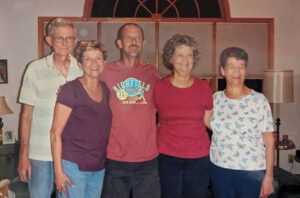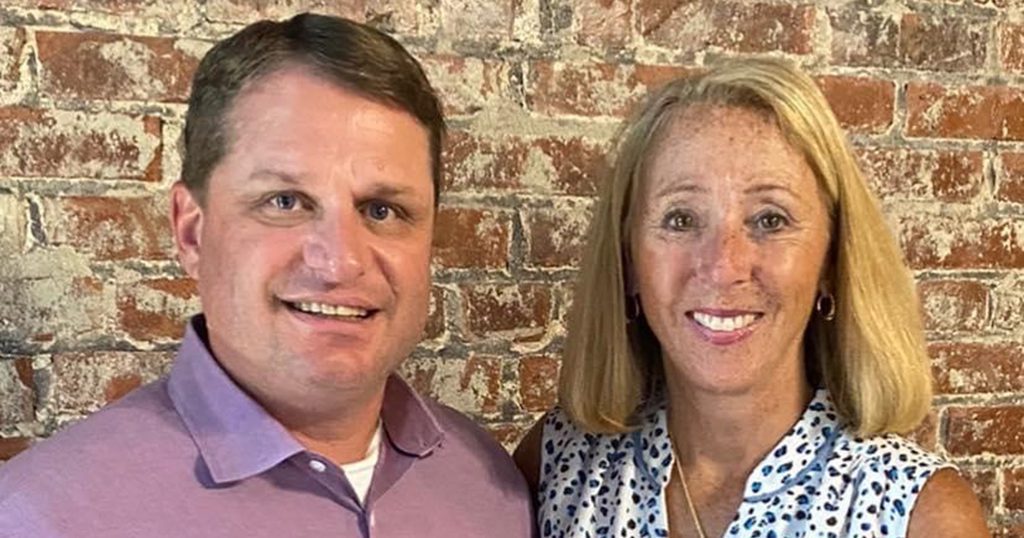Burnett Society members Kaye and Jud Jesske both grew up on farms in rural Nebraska. After moving to Lincoln to study at the University of Nebraska–Lincoln, they both went on to successful careers. Jud is a vice president at Farm Credit Services of America, and Kaye is a senior director of development at Bryan Health. But Kaye and Jud never forgot their roots or the values of family, hard work and service that their small-town upbringing instilled in them.
In alignment with those values and their gratitude for the education they received at UNL, Kaye and Jud have established a scholarship fund through their estate to support agriculture students at the Institute of Agriculture and Natural Resources at UNL.
This Q&A was presented to Kaye and Jud in February.
What was the first job(s) you ever had?
Jud: The first job I had related to growing up on a diversified farming operation in south-central Nebraska. It involved caring for livestock and growing crops. From my early years on until leaving for college, there were farm-related responsibilities that needed attention on the farm. I am still involved with managing the family farming operation near Blue Hill.
My first employment after college was being an agricultural loan analyst at the National Bank of Commerce. This gave me solid footing for a lifelong career of financing various agricultural industries. I currently work as a managing director of capital markets at Farm Credit Services of America.
Kaye: I was a waitress in a small-town café in southeast Nebraska. I enjoyed visiting with the guests and learned how to converse with all age groups. However, the most important thing I learned was how to provide quality customer service and enjoy my customer interactions.
What is the best advice anyone ever gave you?
Jud: Professionally, the best advice given to me was: 1. Work for a solid company that you are proud to represent. 2. Choose your customers wisely, because in the beef industry, there will be a time when you have to go to bat for that customer when no one else will. This advice was given to me early in my lending career by James Herring at Friona Industries, the third-largest cattle feeder in the United States.
Kaye: My mother always said, “Everything happens for a reason.” I don’t know if I believed her when I was younger, but as I have grown and raised my own children, I think she was spot on.
What is the question that you like to be asked the most?
Jud: What do you do for a living? I help finance the food that feeds America and the world. I was raised in rural America on a farm, and I am blessed to continue to be affiliated with an industry that provides the most plentiful and safest food on the planet. I love living in Nebraska — “The Beef State”!
Kaye: Did you like growing up in a small town? I loved my childhood and the opportunity to know everyone in my community (population 250) and treat everyone like family. I realize we all knew everything about one another, but that is what made it really special.
Who has influenced your life for the good, and what have you done to help others lately?
Jud: I have had many positive influencers that include WWI and WWII veterans that provided day care for me as well as family, teachers and friends throughout my life. The greatest influence came from a person I never knew — my great grandfather, Ferdinand Wademan. He came to this country with very little and walked from Baltimore, Maryland, to St. Louis, Missouri. In St. Louis, a complete stranger gave him a ticket to ride the train to his final destination in Nebraska. This act of kindness from over a century ago will continue to be shared with the next generations in our family to show the importance of helping others. Ferdinand made a point the rest of his life to help others who were immigrating or traveling past his farm with a warm meal and bed as needed.
My assistance to others comes in the form of contributions and involvement with specific service and philanthropic organizations, including Christ Lincoln church, People’s City Mission, Cedars Home for Children, FarmHouse Foundation and the Nebraska FFA Foundation.
Kaye: My mother — she was compassionate, smart, funny, ornery and energetic. She loved to help others, especially children. Her passion passed on to my family, as we enjoy supporting children and youth causes and participate in community events and fundraisers as a family.
Why do you plan to leave a gift to the University of Nebraska in your estate?
Jud: Having an agricultural major at the University of Nebraska means there are numerous scholarships available to assist with college expenses. I was blessed to receive scholarships while attending, and many companies and individuals have made it a priority to help the next generation at UNL. I believe it is my responsibility to do the same. I have named the University of Nebraska College of Agriculture as a beneficiary in my estate. This is my commitment of service to the next generation of agricultural majors at UNL as well as my commitment to honor the legacy of my great grandfather, Ferdinand Wademan. As he said, to help others “may at times require a sacrifice of time, pleasure and comforts.”
Kaye: Tuition, room and board and fees continue to climb each year. Because of the situation, we decided to set up scholarships to help defray the cost for students. As we were raised on a farm, there were not a lot of scholarships or funds available when we went to school. Education is so important, and we feel that everyone should have the opportunity to further their education. We obviously have a passion for rural students, but we will help out where needed.
The Burnett Society recognizes those who support the university through a planned gift, usually from their will or trust. The group takes its name from Edgar A. Burnett, a chancellor at the University of Nebraska during the Great Depression, who recognized the university would not succeed on state funding alone. He called on 30 business and civic leaders, and together they created the University of Nebraska Foundation to raise private funds for the university.
"I was blessed to receive scholarships while attending, and many companies and individuals have made it a priority to help the next generation at UNL. I believe it is my responsibility to do the same."
Jud Jesske
You may also like ...

Fighting Cancer by Giving Back
After several family members fought and succumbed to cancer, Doris Jones decided to give back to future generations by supporting cancer research.

Missouri Native Becomes A Husker Fan
Burnett Society member Paul Garnett has been a loyal Husker Athletics fan ever since he moved to Nebraska from his home state of Missouri nearly 49 years ago.

Burnett Society Spotlight: Dennis Schulte
Professor Emeritus Dennis Schulte, Ph.D., honored in 2023, and his wife Ruth Ann, are lifelong Nebraskans dedicated to education, establishing scholarships and including UNL in their estate plans.






